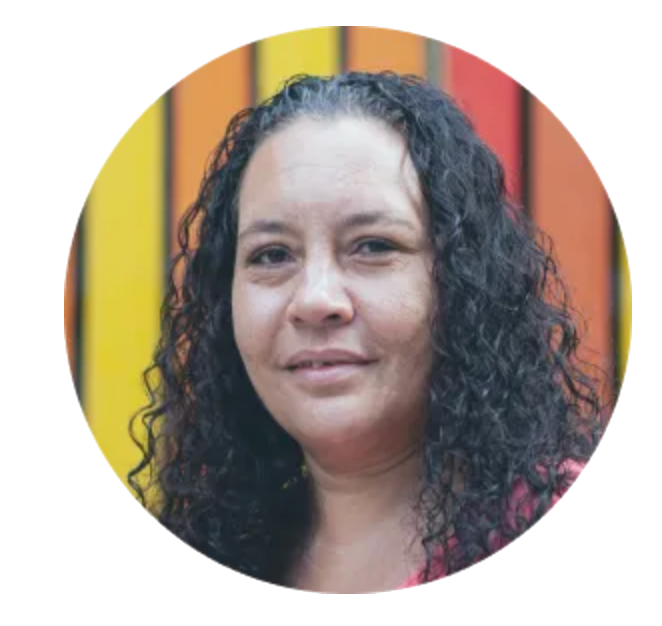

Individuals
Discover how your life experiences can help people in your community. Learn valuable skills and find a new career pathway.
St Giles Trust helps people in need. They believe that people who have overcome challenges in their own lives can make positive changes for others.
Lots of organisations want to improve services for their users. They do this by offering voluntary and paid roles for people with lived experience.
More and more specialist lived experience roles and opportunities are appearing.
These roles cover several areas, including:
– Leadership Specialist Experience
– Subject Matter Expert
– Trustee and Governance

Benefits of Peer and Lived Experience Roles
You can offer unique support to others:
Empathy and Understanding: Connect with people on an emotional level.
Real-World Knowledge: Understand the challenges and barriers faced by service users.
Inspiring Hope: Share your own stories of recovery and resilience.
Building Trust: Build strong relationships with people who may be hard to reach.

Thinking of getting involved?
Starting your journey into lived experience and peer roles can be scary and stressful, especially if you haven’t worked in a while.
Perhaps you don’t have much experience, or you lack confidence. Volunteering could be the first step you need.
This is when you give your time and skills to help others without getting a wage.
Volunteering can support you to:
– Learn new skills
– Build confidence
– Meet new people
– Access training and support
– Gain valuable work experience in a professional setting

Getting compensated for your time
If you’re volunteering your time to help others, your contribution should be valued. You shouldn’t be at a financial disadvantage because you choose to volunteer. Many organisations will offer compensation for your time and effort.
What you could get:
– Financial support which covers travelling costs and lunch vouchers.
– Clear guidance on volunteering when you’re on benefits. You need to know that this won’t harm your payments.
For clear guidance on volunteering and claiming benefits visit GOV.UK.
You can find out more about this, and details about DBS checks and disclosures, in the resources section below.

Looking for volunteering opportunities is similar to searching for paid jobs.
Search websites:
Many organisations advertise on Charity Job Finder, Charity Job, and their own websites.
Narrow your search:
Have a specific area of interest? Like addiction, homelessness, mental health, or the criminal justice system? Google local charities that offer those services and see if they recruit volunteers.
Visit the TSSW website:
Get advice and information about volunteering from a network of organisations on Third Sector Support Wales. They aim to raise the profile of volunteering and improve your experience. Find volunteering opportunities on their Volunteering Wales website.
Volunteering in England:
Visit the National Association for Voluntary and Community Action and National Council for Voluntary Organisations (NCVO) websites for information, advice, and volunteering opportunities

Front Line Service Delivery Role
Use your personal experiences to offer support and guidance to people, groups and communities.
Example roles
– Peer Support Worker
– Peer Volunteer
– Community Support Worker
– Peer Recovery Worker
– Lived Experience Recovery Assistant
– Peer Mentor / Advisor
– Wellbeing Coach
– Lived Experience Coach / Worker
– Lived Experience Facilitator
You could be: Providing information, advice and guidance. Helping them to use community services and resources. Supporting with everyday tasks. Giving relational support. Being a mentor or role model. Connecting and working with the community.

Lived Experience / Peer Support Role
Use your lived experience to offer specialist support based on what the service and the community need.
Example roles
– Youth Peer Support Worker
– Children and Families Case Worker
– School Embedded Mentor
– Exploitation and Gang Worker
– Peer Drug and Alcohol Worker
You could be: Giving advice and help based on what the person needs. Supporting others who are recovering. Assisting services to connect and work with the community. Helping with social and emotional wellbeing. Designing and delivering support programmes

Senior Lived Experience / Peer Support Role
Use your lived experience to manage and provide supervision, mentoring and training to the team.
Example roles:
– Senior Lived Experience Worker / Coordinator
– Peer Support Supervisor
– Lived Experience Advisor/Lead
You could be: Welcoming and training new staff. Attending external meetings. Supervising and managing the work of the team. Creating helpful resources. Ensuring that policies and practices are being followed.

Lived Experience Leadership Role
Help shape and improve services, strategies, and workforce development. Use your lived experience at a strategic level.
Example roles:
– Lived Experience Project Manager
– Lived Experience Consultant
– Lived Experience Director
You could be: Developing, managing and supporting the team. Ensuring that services meet standards and regulations. Coordinating and developing services. Advising on service improvements. Developing strategies and processes.

Lived Experience Advocacy and Representative Role
Help amplify and represent the voices of service users and communities. Ensure that they are being listened to when making decisions and developing services.
Example roles:
– Community Advocate
– Service User Representative
– Lived Experience Ambassador
You could be: Speaking in public to share insights and fight for change. Hosting meetings and focus groups to gather feedback. Ensuring that the user’s voice is listened to when designing and evaluating services.

What others have said about their volunteering journey

“Being able to use my lived experience has had a massive impact on not just me but the people I am supporting. Having support from someone who has been there is important to them as they can see a way out through me and my experiences.”
Jane, Peer Support Worker
“I have had some amazing results with clients, I have helped people come off drugs, I’ve given clients a space to open up without fear and judgement, I give my clients the support and understanding that people who haven’t got lived experience would never be able to do because they don’t fully understand.“
Gareth, Intervention Caseworker – Read more about Gareth’s story



